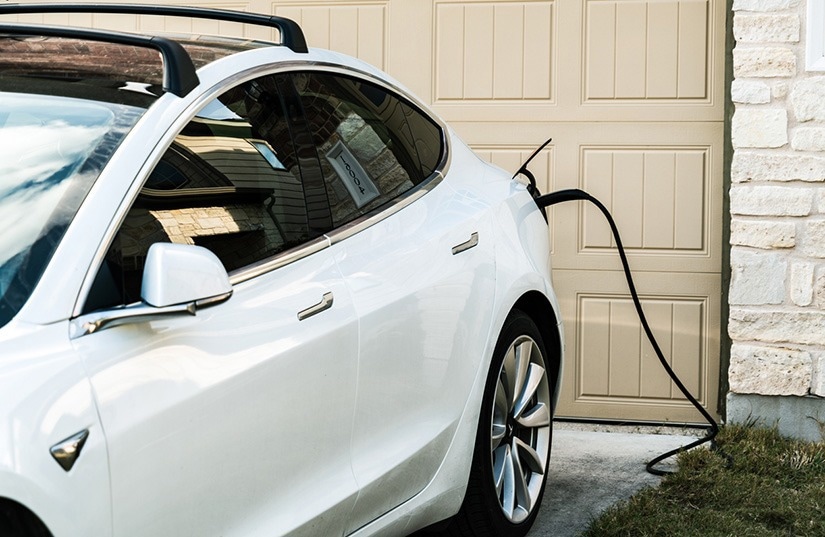The National Renewable Energy Laboratory (NREL) of the US Department of Energy conducted an analysis of a behavioral study and found that owners of electric cars (EVs) are more likely to take it a step further and install solar panels in their homes. On the other hand, albeit not as much, having solar panels has an impact on a homeowner's decision to purchase an electric car.

Researchers at NREL determined that people who own electric vehicles tend to also adopt solar technology in their homes. Image Credit: iStock
A survey of 869 San Francisco Bay Area households served as the study's primary source of data.
Owners of electric vehicles (EVs) may be more likely to invest in photovoltaics (PVs) because the installation of solar panels may offset the residential portion of the energy bill required to charge them at home, according to NREL's Shivam Sharda, lead author of the research paper that analyzes the survey results.
Both EVs and PVs have a complementary nature, which might play a pivotal role in energy systems resiliency, addressing concerns regarding grid stability and power management strategies.
Shivam Sharda, Computational Research Scientist, Center for Integrated Mobility Sciences, NREL
The study was published in the journal Renewable and Sustainable Energy Reviews. An interdisciplinary team of researchers from Lawrence Berkeley National Laboratory, the University of California Santa Barbara, and NREL's Venu M. Garikapati, Janet L. Reyna, and Bingrong Sun co-authored the work.
As a component of the WholeTraveler Transportation Behavior Study, the survey was carried out in 2018. The study was done in a year where a lot might have happened, the researchers acknowledged. With the release of the 2022 Residential Energy Consumption study, they went over the subject again and noted that the association between EV and PV might still hold true.
Rooftop solar panels were owned or previously owned by more respondents in the 2018 study (9.1% vs. 6.5%) than electric vehicles. The researchers observed that solar panel technology is less expensive than most EVs and that PV technology has been available for a longer period of time than EVs.
A relationship between the two technologies was discovered. Just 8% of non-EV owners had photovoltaic systems, compared to 25% of EV owners who did. The behavioral survey identified two factors: being aware of them and being approachable enough to inquire about them, which may have led an individual to embrace one or both of the technologies.
If you have a friend or a family member who owns a rooftop solar panel or an EV, you become more educated about the technology, so you know the pros and cons by talking to them. That has a significant influence on your owning EVs or PVs.
Shivam Sharda, Computational Research Scientist, Center for Integrated Mobility Sciences, NREL
Although governments provide incentives for the adoption of PVs and EVs, the researchers recommended taking into account policies that work together to speed up the adoption of both technologies. Such incentives may encourage EV owners to adopt solar technology far earlier than is now the case because they are motivated to use PV anyway.
A household's speed of adoption of cross-sectoral sustainable technology will determine how quickly decarbonization targets are met.
The study, according to the researchers, shed light on the relationship between EVs and PV, but further comprehensive studies are required to analyze the relationship between residential energy consumption and transportation as it is changing and to find strategies to decarbonize energy use in all sectors.
The research was funded by the Vehicle Technologies Office of the Department of Energy.
Journal Reference
Sharda, S., et.al., (2024). The electric vehicles-solar photovoltaics Nexus: Driving cross-sectoral adoption of sustainable technologies. Renewable and Sustainable Energy Reviews. doi.org/10.1016/j.rser.2023.114172.